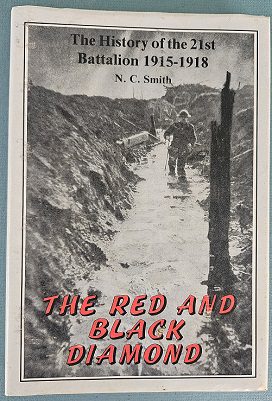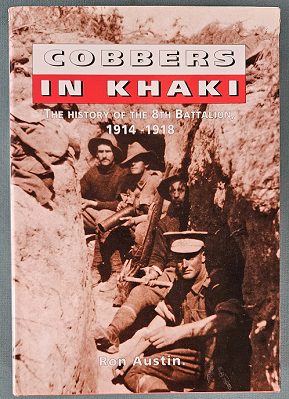Description
Title: The Story of the Twelfth – A Record of the 12th Battalion, A.I.F. during the Great War of 1914 – 1918
Author: Newton, L M
Condition: Very Good
Edition: 1st Edition
Publication Date: 1925
Cover: Hard Cover without Dust Jacket – 508 pages
Comments: The original detailed history of the Twelfth Battalion AIF during World War I.
The 12th Battalion was among the first infantry units raised for the AIF during the First World War. Half of the battalion was recruited in Tasmania, a quarter was recruited in South Australia, and a quarter from Western Australia. With the 9th, 10th and 11th Battalions it formed the 3rd Brigade.
The battalion was raised within three weeks of the declaration of war in August 1914 and embarked just two months later. After a brief stop in Albany, Western Australia, the battalion proceeded to Egypt, arriving in early December. The 3rd Brigade was the covering force for the ANZAC landing on 25 April 1915 and so was the first ashore at around 4:30 am. Lieutenant Colonel L. F. Clarke, commander of the 12th Battalion, was killed by a sniper within hours of the landing. The battalion was heavily involved in establishing and defending the front line of the ANZAC position, and in August contributed two companies to the attack on Lone Pine. It was the only battalion in the brigade to do so. The 12th served at ANZAC until the evacuation in December.
After the withdrawal from Gallipoli, the 12th Battalion returned to Egypt and, in March 1916, sailed for France and the Western Front. From then until 1918 the battalion took part in bitter trench warfare. The battalion’s first major action in France was at Pozières in the Somme valley in July 1916. After Pozières, the battalion fought at Ypres in Flanders and then returned to the Somme for winter.
In 1917 the battalion took part in the brief advance that followed the German Army’s retreat to the Hindenburg Line. For their valorous actions near Boursies during this advance, Captain J. E. ‘Jim’ Newland, commanding A Company, and Sergeant J. W. Whittle were each awarded the Victoria Cross. The battalion subsequently returned to Belgium to participate in the offensive that became known as the Third Battle of Ypres.
In March and April 1918 the battalion helped to stop the German spring offensive, and later participated in the great allied offensive of 1918, fighting near Amiens on 8 August 1918. This advance by British and empire troops was the greatest success in a single day on the Western Front, one that German General Erich Ludendorff described as “the black day of the German Army in this war”.
The battalion continued operations until late September 1918. At 11 am on 11 November 1918, the guns fell silent. Soon after, the members of the AIF began to return to Australia for demobilisation and discharge.
Cover loose from book previously and has been repaired to prevent cover coming away from the book. Otherwise in very good condition.




